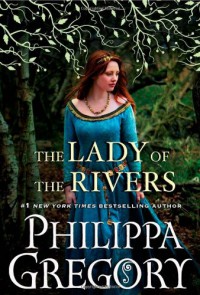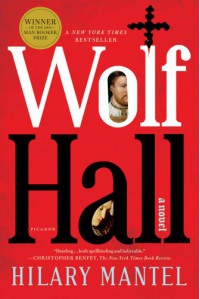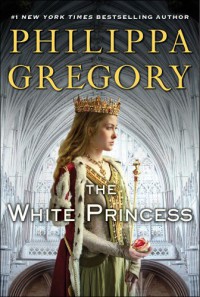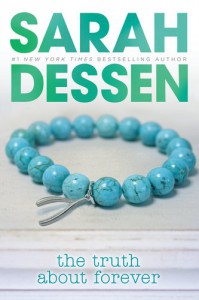
I think [a:Philippa Gregory|9987|Philippa Gregory|http://d202m5krfqbpi5.cloudfront.net/authors/1351685194p2/9987.jpg] does her best work when she stays away from the royals themselves and makes her protagonists less well-known characters--basically, because she's allowed to make more stuff up. In some of her books, it feels like her characters are just biding their time until the next historical event happens. There are points in this book that feel that way, but by choosing Jacquetta of Luxembourg as her protagonist, Gregory allows herself the space to tell some compelling stories.
The romance between Jacquetta and Richard Woodville is utterly charming, and it's the book's greatest strength, in my opinion. It produced no less than fourteen children, so their marriage must have been a passionate one, and Gregory makes their story into a lovely fairy tale. I liked those bits the best, especially towards the beginning of the story, when they were falling in ~forbidden love~ with each other because she was a duchess and he was a lowly squire.
However, the rest of the book chronicles England's descent into the Wars of the Roses, and it's a depressing tale of crisis after crisis and battle after battle, with the victor switching from York to Lancaster and back again. Imagine how depressing it must have been to live in such a country. Jacquetta sticks close to Queen Margaret of Anjou for most of the book, so we get to see the queen through her eyes. We also see poor Henry VI and his descent into... whatever it was that plagued him. (My pet theory: encephalitis lethargica, with post-encephalitic parkinsonism.) It's a sad, bitter tale of a royal couple who are utterly unable to rule their country with anything close to fairness, Henry because he's barely aware of anything but his own prayers, and Margaret because she has made so many enemies and is determined to punish them all with death. The Yorks, on the other hand, are for the most part merciful and just, and run the country much better than the king and queen do. It's hard not to cheer for them, even though Jacquetta and her family are honor-bound to remain on the Lancaster side for as long as possible.
Philippa Gregory really, really likes to write about Jacquetta's visions and premonitions (and later, her daughter Elizabeth's), and they are always right, and it gets a bit tiring after a while. Like, of course she's always right, because you already know what happens, and WE already know what happens, so it's not actually that impressive. I did, however, enjoy the bits with the tarot cards and Fortune's Wheel. It's a good theme for the Wars of the Roses, since pretty much anyone involved in them rose and fell on the wheel multiple times before it was all over. Margaret of Anjou makes such an awful ruler because she can't accept any sort of defeat or loss. Henry VII in [b:The White Princess|12326627|The White Princess (The Cousins' War, #5)|Philippa Gregory|http://d202m5krfqbpi5.cloudfront.net/books/1361537023s/12326627.jpg|17305270] is similar, and a ruler who must win at any cost, even the cost of the fair and just governing of their own country, is not what any country needs. Cough cough, American Republicans.
Some of the visions are annoying because they don't come true until chronologically later books in the series, and the book ends right as the events of [b:The White Queen|5971165|The White Queen (The Cousins' War, #1)|Philippa Gregory|http://d202m5krfqbpi5.cloudfront.net/books/1348040140s/5971165.jpg|13560666] begin, which is an odd place to end. The book gets away from this a bit, but its main theme at first is that women who desire power, or dare to wield it, get punished severely. (The book opens with Jacquetta witnessing the burning death of Joan of Arc, and reflecting that the execution is public in order to show young women like her the consequences of attempting to be a powerful woman in a man's world.) Jacquetta fears being tried for witchcraft herself, but we never get to the point in her story when she actually is, so it feels half-finished.
Anyway, I have two minor logistical complaints to mention: The family tree in the front of my edition says that Jacquetta's son Louis died in infancy, when in fact he doesn't die until age twelve. And secondly, a character uses the phrase "can't tell a hawk from a handsaw" to refer to Henry VI, which is ridiculous because that phrase comes from
Hamlet, and Shakespeare wouldn't be born
for another hundred years. I can generally forgive the modern language in the book because it would be nearly unreadable otherwise, but don't use obvious Shakespearean phrases in a pre-Shakespeare novel!
On to [b:The Kingmaker's Daughter|12326644|The Kingmaker's Daughter (The Cousins' War #4)|Philippa Gregory|http://d202m5krfqbpi5.cloudfront.net/books/1332688725s/12326644.jpg|17305288] and Anne Neville! I'm reading these in no order whatsoever.
 So this depression part is really hard for me to read. I'd read it before online, but somehow in the book it was harder to turn the page than I'd anticipated.
Because I remember that shit. I remember trying to do enjoyable things and wondering why they weren't enjoyable anymore. I still have weird aversions to things I tried doing at the time, because they sucked, and even though that's not their fault (sorry, books I picked up while depressed and never finished), I still associate them with bad things.
And now I'm someone who, while not entirely un-depressed, at least knows what un-depressed looks like. I know that it's possible for me to be okay. So now I'm worried that I'm one of those "positive thinking" people who tries to tell other people that everything's all right when it really, really isn't. I have to remember to not do that.
Because my main argument against letting depression continue is that it's stealing my life. Every time I get out of a bout of depression, I'm like "I could have been doing so much more with those days." But I never feel this way WHILE it's going on. I only feel it when I'm on the other side and I can look back and marvel at how low I was.
They've done studies that emotions are tied to memory. When you're depressed, all you know is depression. You don't feel like you'll ever get out of it because you can only imagine yourself in a depressed state. You think about all the bad things that have ever happened to you and forget about the good ones. So someone saying "you should work on getting un-depressed so you can actually live your life!" makes no sense because living life at that point doesn't seem like a worthwhile goal.
So I have to remember not to say that.
Reading this also makes me feel slightly panicky, as if by reading about depression I'm inviting it in, and it's going to grab me again and not let go.
So this depression part is really hard for me to read. I'd read it before online, but somehow in the book it was harder to turn the page than I'd anticipated.
Because I remember that shit. I remember trying to do enjoyable things and wondering why they weren't enjoyable anymore. I still have weird aversions to things I tried doing at the time, because they sucked, and even though that's not their fault (sorry, books I picked up while depressed and never finished), I still associate them with bad things.
And now I'm someone who, while not entirely un-depressed, at least knows what un-depressed looks like. I know that it's possible for me to be okay. So now I'm worried that I'm one of those "positive thinking" people who tries to tell other people that everything's all right when it really, really isn't. I have to remember to not do that.
Because my main argument against letting depression continue is that it's stealing my life. Every time I get out of a bout of depression, I'm like "I could have been doing so much more with those days." But I never feel this way WHILE it's going on. I only feel it when I'm on the other side and I can look back and marvel at how low I was.
They've done studies that emotions are tied to memory. When you're depressed, all you know is depression. You don't feel like you'll ever get out of it because you can only imagine yourself in a depressed state. You think about all the bad things that have ever happened to you and forget about the good ones. So someone saying "you should work on getting un-depressed so you can actually live your life!" makes no sense because living life at that point doesn't seem like a worthwhile goal.
So I have to remember not to say that.
Reading this also makes me feel slightly panicky, as if by reading about depression I'm inviting it in, and it's going to grab me again and not let go.



![The Interruption of Everything [Hardcover] by McMillan, Terry - Terry McMillan](http://booklikes.com/photo/max/100/150/upload/books/11/46/a784f13f3b94475dfd4322fd06e6048f.jpg)





















